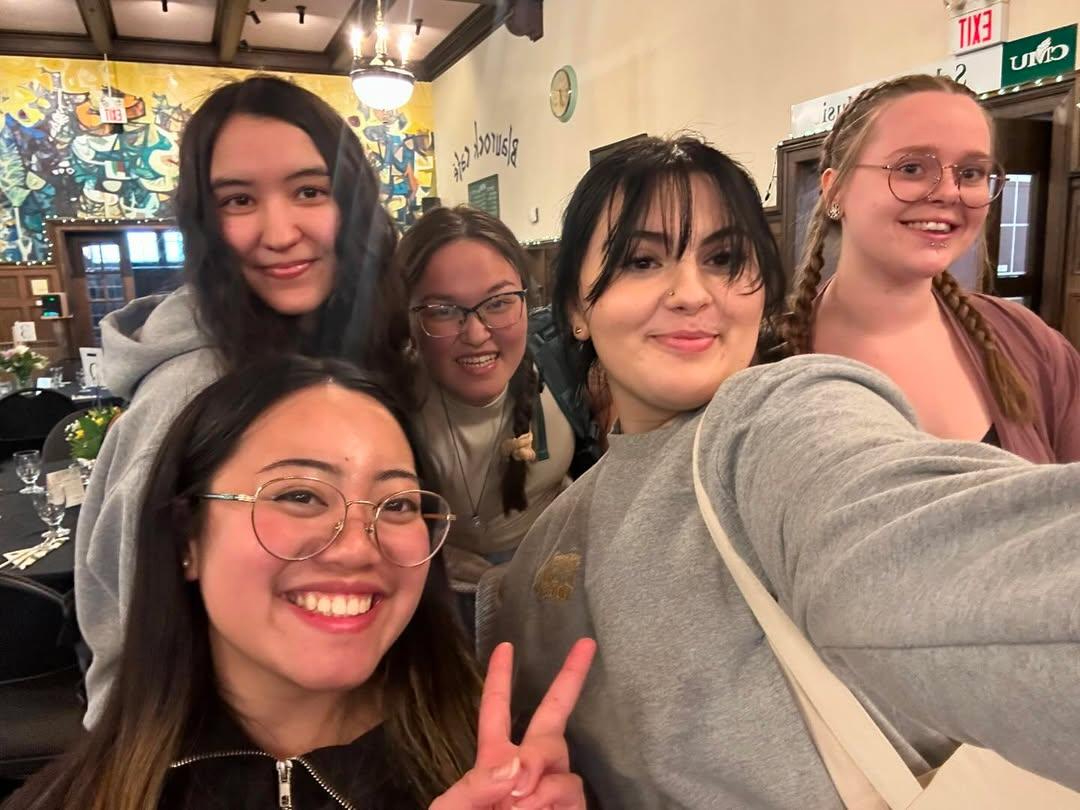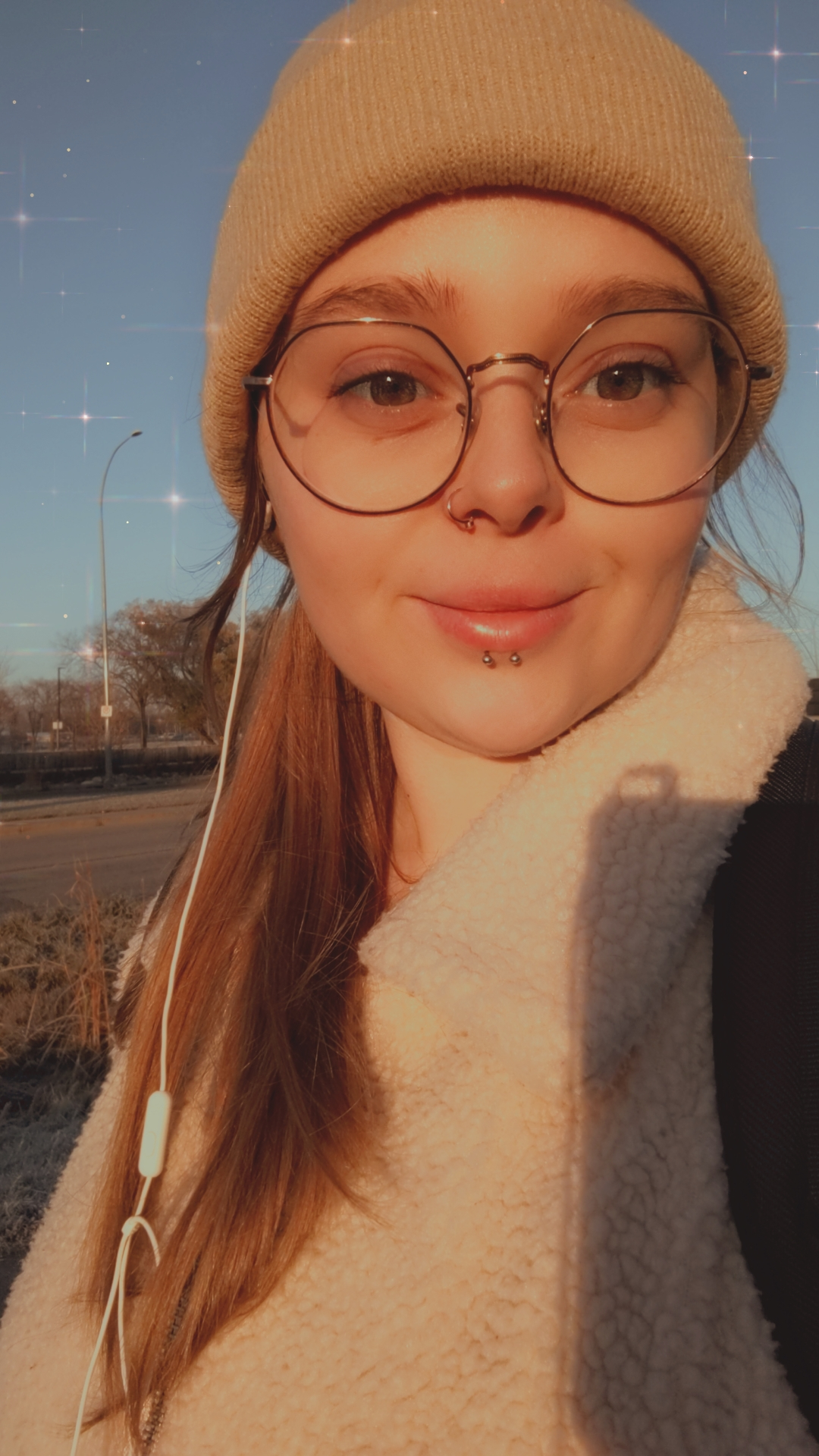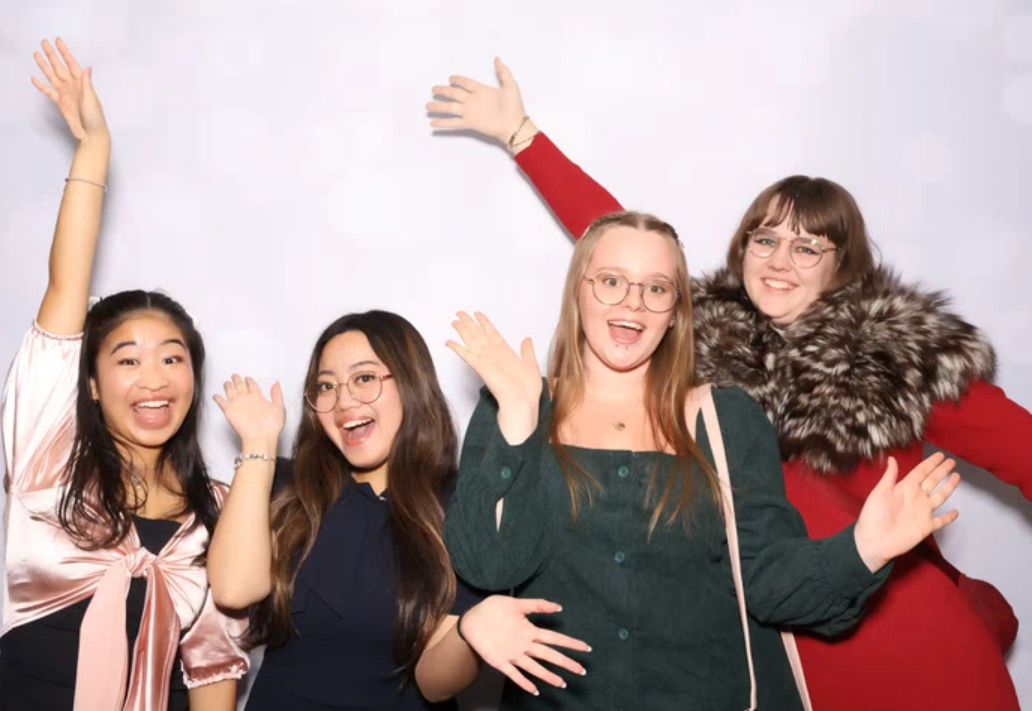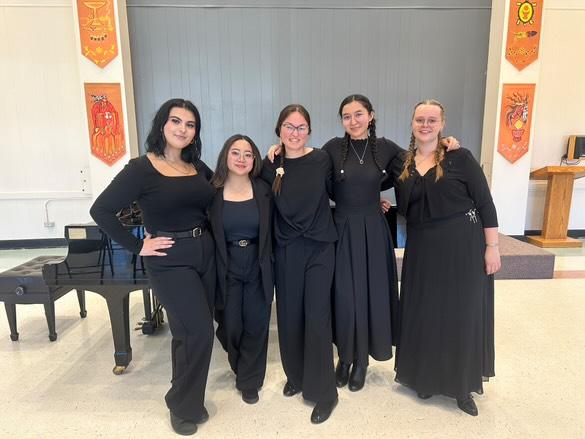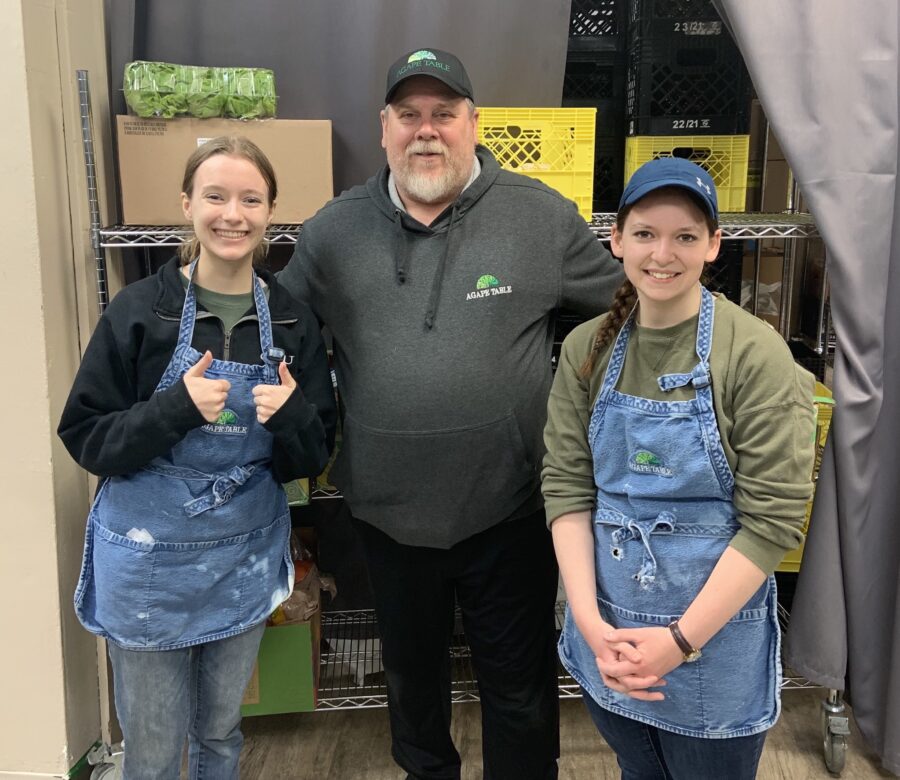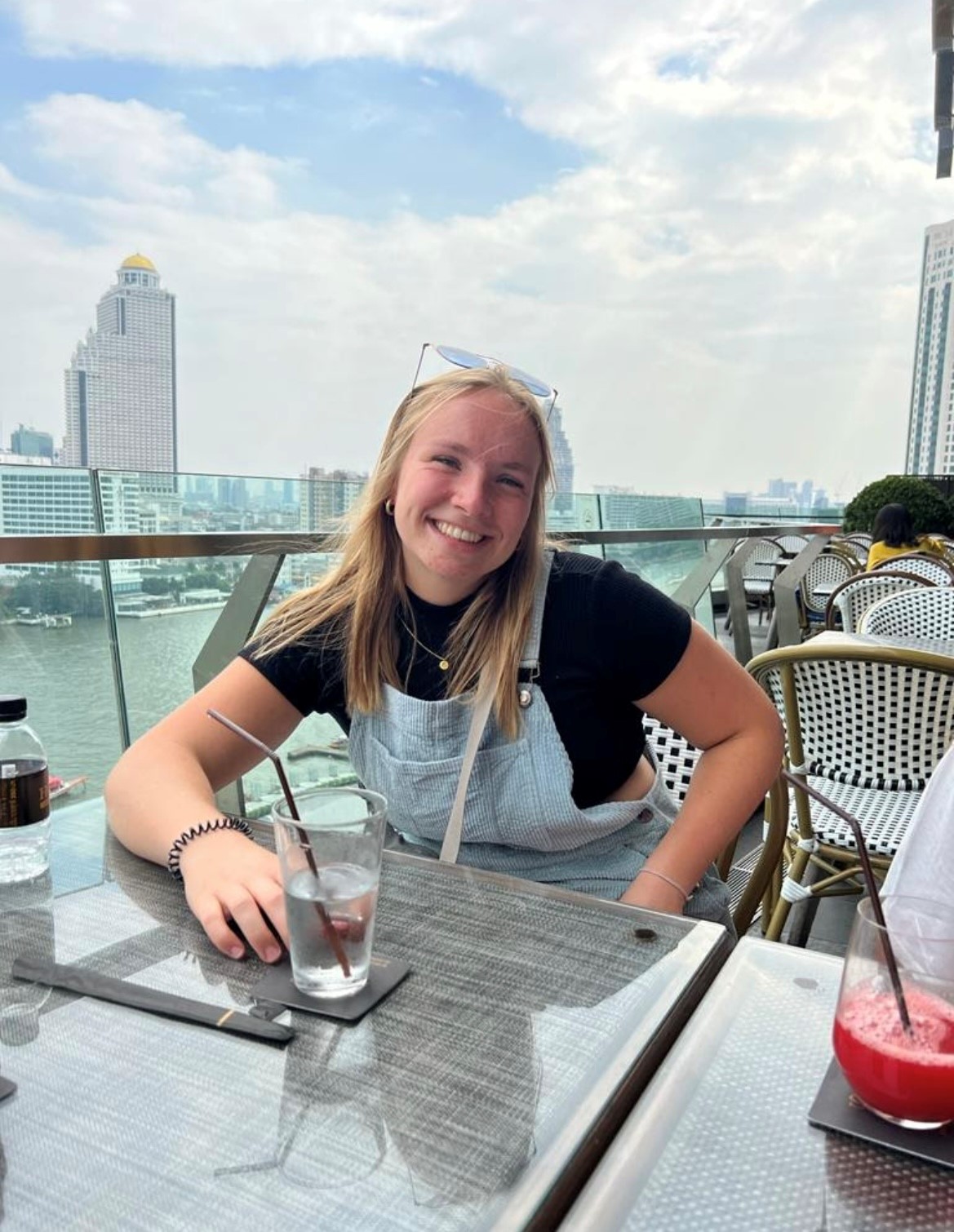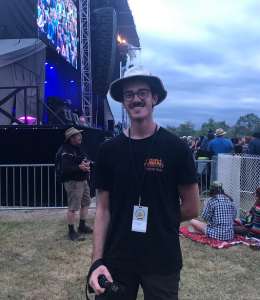Philosophy books, lasting friendships, faint echoes of laughter, and the comforting scent of hot chocolate while rushing in the hallways…
As I make my way to my evening class on the north side of CMU’s campus, I let flickers of past and present memories wash over me. The castle building looms in front of me, still as massive and beautiful as the first day I saw it. I get distracted by the beauty of the snow surrounding me, sparkling and looking like fairy dust in the faint light surrounding the pathways. I breathe out loudly to see the cloud made by the cold air and laugh childishly. Having previously lived on a tropical island where sunshine prevails for most of the year, winter is truly captivating, particularly to those who encounter snow only upon arriving in Canada.
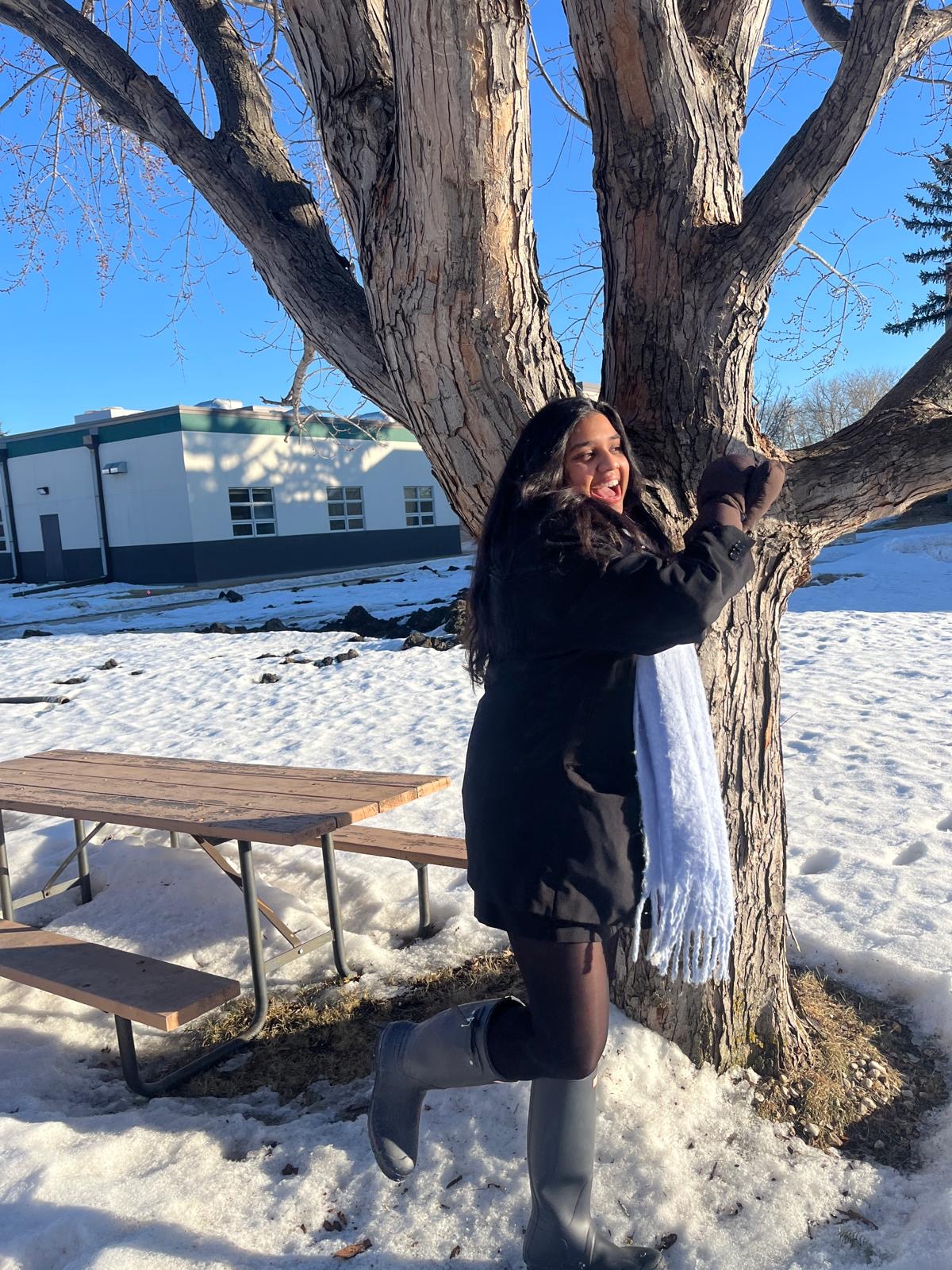
Being an international student is no easy feat. Being away from your family and everything you know, while balancing part-time work and the pressure to excel academically, can be overwhelming. However, my CMU experience was transformed by its strong sense of community. I made a few friends within the first few days of university, not knowing that they would become life-long friends of mine. I remember the short presentations on how to prepare for the academic year and ensure success, along with the campus tours led by faculty members that helped ease the transition. Before long, I was familiar with all the buildings and rushing to my first few classes.
The small class sizes at CMU differ a lot from my previous schools. While my more popular science classes have around 40 students, my philosophy classes consist of ten students or less. Not only do you get to know and engage with everyone in the class, but the professors get to know you on a first-name basis. I am incredibly grateful for my professors, as they have all contributed immensely to my academic success so far.
I was not expecting that I would learn so much from my courses. I started the school year thinking I could be an English major. Then I attended my first philosophy course, The Question of Reality, and it was love at first class! Not only did I find it unbelievable that I was acquiring knowledge from an ancient Greek civilisation, but it was knowledge on how to be a good human being. Of course, once again, I firmly believe that the professor teaching the class impacted immensely my love for philosophy. CMU professors have not only provided me knowledge in the classroom, but I was also able to exercise their wisdom outside of the classroom and into my daily life.
I have been warned by many that the transition from high school to university can be hard. I do agree that it is challenging at first, but I can proudly say that I am now an academic weapon! The resources available at CMU, such as private study rooms, school events to connect with other students, and the beautiful library with large open windows, have certainly made a difference in my academic life. Moreover, the free peer-assisted learning and having tutoring sessions with Sam Friesen, a graduate student and a good friend of mine, have helped in my studies immensely. My best memories were made when I was drinking hot chocolate with Sam in one of the study rooms, debating whether Socrates’ arguments made sense or not.

CMU staff, including Ricah Ursos, Coordinator of International Admissions & Programs, and Sandra Loeppky, Coordinator of Accessibility Services, have helped immensely—whether it is to bring international students together or to provide resources such as how to dress warm in extremely cold weather. They have made my experience here incredible, and I am once more sincerely grateful for their help. In fact, once I got used to the cold, my friends living with me in the residence building soon dragged me along to go sledding or have random snowball fights in the middle of the night.
The reason I came to CMU was as random as finding a pair of well-fitted cowboy boots in your shoe size, abandoned in the streets. I typed “Hogwarts castle,” stumbled upon the university, and noticed there was a tennis court nearby. A couple months later, I was boarding a plane to study at a place where I knew no one. And right now, I am walking towards one of my coolest classes of the semester and mentally taking note that I would love to attend community chapel tomorrow and hang out with my friends afterwards.
Being an international university student means that you are undoubtedly going to go through a lot of personal growth. For me, CMU was the best place I could have asked for to grow emotionally, spiritually, and academically. I still have more growing to do, but I know I will be okay with the people I’ve met, the friends I’ve made, and the support I get from being a student at Canadian Mennonite University.
Trisha Boodhoo is a second-year Bachelor of Arts student, majoring in Interdisciplinary Studies—English and Philosophy—and minoring in Biblical and Theological Studies.


